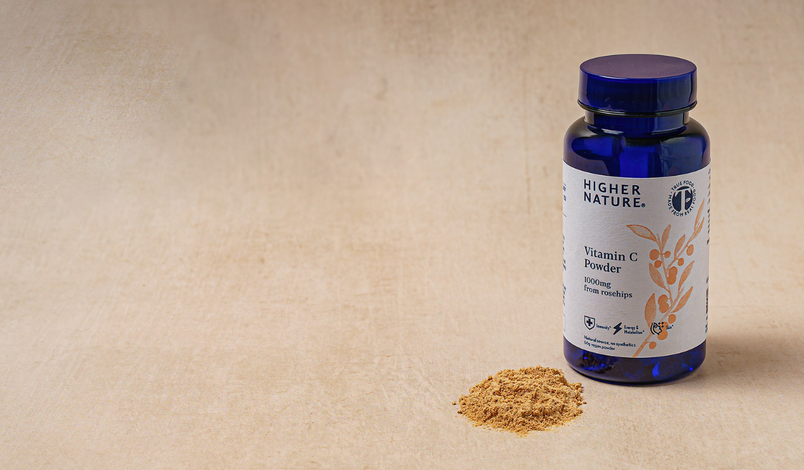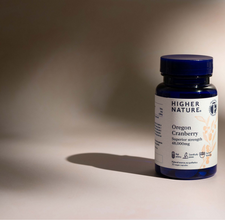
Digestion problems
Higher Nature Nutrition Team
Q: I often suffer from indigestion after I eat. Have you got any tips to help me?
A. Sometimes after eating we get indigestion, that unpleasant feeling of being bloated, uncomfortable and nauseous. The symptoms are usually worse after a large meal or if we lie down soon after eating. For some it is occasional, for others it is a severe, chronic condition. Before reaching for antacids and other medications, why not try an alternative approach?
Symptoms of indigestion can be caused by low stomach acid rather than too much. The function of stomach acid is to protect our bodies from microbes in our food and to start the process of digestion. As we age, production of stomach acid decreases. When it is low or absent, food isn’t digested properly and it feels uncomfortable in our gut. The high acidity in our stomachs breaks down proteins and helps with mineral and vitamin B12 absorption.
A simple test to check for stomach acid levels is to drink a glass of water mixed with a teaspoon of bicarbonate of soda on an empty stomach and wait 10-15 minutes. If acid is present you will burp as the bicarbonate reacts with the acid, if there is no or little acid there will be no reaction. If this is the case it is well worth boosting your levels of stomach acid. Try Betaine HCl, a safe form of hydrochloric acid. Build the dose gradually and if you feel a burning sensation, drink a glass of milk and reduce the level. Alternatively, try mixing organic apple cider vinegar with a glass of water and drink with meals. Gradually increase the amount of organic apple cider vinegar up to 10 teaspoons and if you experience a burning sensation, treat as above. Both remedies have been shown to aid digestion and relieve symptoms of indigestion. They also stimulate the stomach to start producing more stomach acid and gradually you will be able to decrease your dose.
Digestive enzymes can also be a great support for indigestion and are worth trying before every meal.
Additionally, eat more slowly and chew food properly, avoid eating large portions and eat three to four hours before bedtime. Keep a food diary and see if there are any foods that are particularly aggravating. Stress plays havoc with digestion - endeavour to relax when you eat.
Enjoy thinking about what you are going to eat and savour the smells as this mental process signals the release of the gastric juices we need to digest our food properly.


















